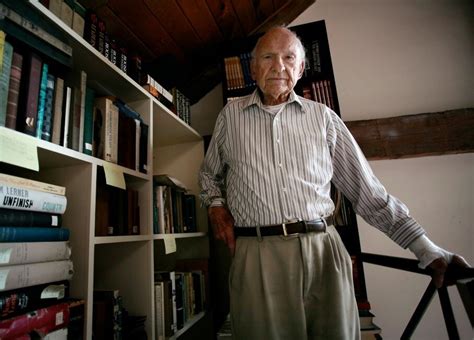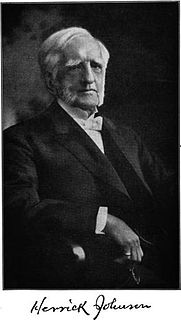A Quote by John M Swomley
This book is not a polemic treatise but a powerful, well-researched account that sensitizes any reader to the ways in which in-difference permits brutality and genocide.
Related Quotes
Every reader, as he reads, is actually the reader of himself. The writer's work is only a kind of optical instrument he provides the reader so he can discern what he might never have seen in himself without this book. The reader's recognition in himself of what the book says is the proof of the book's truth.
Genocide is not just a murderous madness; it is, more deeply, a politics that promises a utopia beyond politics - one people, one land, one truth, the end of difference. Since genocide is a form of political utopia, it remains an enduring temptation in any multiethnic and multicultural society in crisis.
In my couple of books, including Going Clear, the book about Scientology, I thought it seemed appropriate at the end of the book to help the reader frame things. Because we've gone through the history, and there's likely conflictual feelings in the reader's mind. The reader may not agree with me, but I don't try to influence the reader's judgment. I know everybody who picks this book up already has a decided opinion. But my goal is to open the reader's mind a little bit to alternative narratives.
He is no true reader who has not experienced the reproachful fascination of the great shelves of unread books, of the libraries at night of which Borges is the fabulist. He is no reader who has not heard, in his inward ear, the call of the hundreds of thousands, of the millions of volumes which stand in the stacks of the British Library asking to be read. For there is in each book a gamble against oblivion, a wager against silence, which can be won only when the book is opened again (but in contrast to man, the book can wait centuries for the hazard of resurrection.)
A book is one of the most patient of all man's inventions. Centuries mean nothing to a well-made book. It awaits its destined reader, come when he may, with eager hand and seeing eye. Then occurs one of the great examples of union, that of a man with a book, pleasurable, sometimes fruitful, potentially world-changing, simple; and in a library...witho ut cost to the reader.
The book is finished by the reader. A good novel should invite the reader in and let the reader participate in the creative experience and bring their own life experiences to it, interpret with their own individual life experiences. Every reader gets something different from a book and every reader, in a sense, completes it in a different way.


































